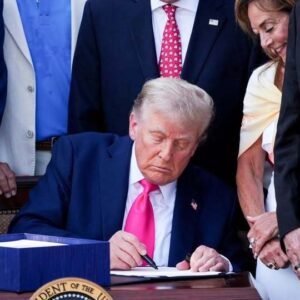Jimmy Kimmel returned to his late-night stage this week in one of the most emotionally charged episodes of his career. After a weeklong suspension following backlash over remarks about Charlie Kirk’s death, Kimmel opened his show with a lengthy, tearful statement. He spoke slowly and deliberately, often pausing to regain composure. The audience, unusually quiet, watched as Kimmel acknowledged the controversy and tried to clarify his intentions. He insisted that his previous comments were not meant to make light of tragedy but to highlight how political discourse can become toxic when real lives are at stake.
In his opening monologue, Kimmel addressed Erika Kirk, Charlie Kirk’s widow, by name, praising her unexpected message of forgiveness at her husband’s memorial. He said her grace and dignity “stopped him in his tracks” and made him reflect on his own tone. Kimmel admitted that his words, delivered in the heat of public debate, could have come across as cruel or dismissive. He emphasized that public figures, especially entertainers with large platforms, have a responsibility to recognize the human cost of the stories they discuss.
Kimmel also clarified that he did not blame any political group for the killing of Charlie Kirk. He described the accused suspect as “a deeply disturbed individual,” rejecting attempts to frame the murder as the result of any one ideology. He said it was painful to see his comments used as ammunition in online arguments and cable news segments. “When tragedy strikes, the first thing we should be doing is comforting those who’ve lost someone, not scoring points,” he told viewers. The studio audience applauded softly, sensing a more somber tone than usual for the show.
Despite his emotional delivery, Kimmel stopped short of offering a formal apology. Instead, he expressed regret for the misunderstanding and frustration at how the controversy spiraled. He defended his right to free speech but admitted that freedom comes with consequences. He also criticized media outlets that had suspended or censored the show, calling the decision “an overreaction” and “un-American.” Kimmel suggested that meaningful dialogue, rather than punishment, would better serve the public when controversies erupt.
Behind the scenes, the network reportedly weighed whether to extend Kimmel’s suspension but ultimately decided to reinstate him after what insiders described as “serious and thoughtful conversations.” Ratings had dipped during the week of his absence, and social media buzz suggested viewers were eager to hear directly from Kimmel. The show’s return was framed as an opportunity for him to clarify, heal, and move forward. By the end of the monologue, Kimmel had shifted from defensive to reflective, noting that “real change comes from empathy and listening.”
Reactions to his return have been mixed. Supporters praised Kimmel for confronting the issue head-on and showing vulnerability rarely seen on late-night television. Critics argued that his clarification fell short and that he should have issued a direct apology to the Kirk family. Yet even some detractors admitted that the segment revealed a more human side of a celebrity often known for satire and sharp political jokes. Whether the moment will mark a turning point in Kimmel’s public persona remains to be seen, but his tearful return underscored a broader tension in American media: balancing free expression with sensitivity in times of tragedy.





